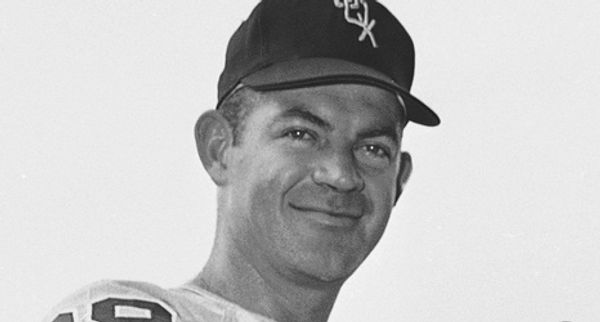
Earlier this week, it was announced that Kim Williams, former News Corp and Fox chief executive, would be taking over the mantle of the ABC as chair, replacing the outgoing Ita Buttrose.
Much has been made of Williams’ News Corp past, but he has a long history in professional management that takes in a number of arts and film organisations, as well as the AFL. When he replaces Buttrose in March, he’ll become the first chair in the history of the national broadcaster to have experience actually running one before appointment.
Who is Kim Williams?
Kim Williams grew up in Sydney’s northwest, son to parents David and Joan, as a student of the clarinet and, notably, Lego (he was national Lego champion at age 11). Upon leaving school, he studied music at the University of Sydney. While at university, through the late 1960s and early 1970s, he composed several productions, and was interrupted only by the Vietnam War. Williams conscientiously objected and never served in Vietnam, with the Whitlam government abolishing national service in 1972. He would go on to marry Gough Whitlam’s youngest child Catherine Dovey in 1998, after a six-year first marriage to author Kathy Lette.
He led several arts boards, joining the inaugural Australia Council Music Board (now Music Australia, a division of Creative Australia) in 1973, and ran Musica Viva Australia in 1977, first as general manager, before rising to chair from 1998-2004. He then became CEO of the Australian Film Commission, having also been an executive at the ABC itself in the 1990s, appointed to lead the broadcaster’s brief foray into pay television, before joining Fox Studios amid rights negotiations in 1995.
By 2001 he was the chief executive, remaining in the role for a decade before joining News Limited, as it was known then. He was appointed a Member of the Order of Australia in 2006 for services to the arts, film and television industries. He left News Corp in 2013, and in 2014 published Rules of Engagement, a memoir of his time in the nation’s boardrooms. He would become an AFL commissioner that same year, before returning to the arts sector as chair of the State Library of NSW in 2016.
Some of Williams’ former colleagues, including those spoken to by Media Briefs, have described him as exceedingly intelligent, with one describing him as being “too smart” for Holt St. Others have described him as having a “ferocious temper”, lacking “not just social skills but political skills”.
What happened with Rupert?
To say his time at Holt St was tumultuous would be an understatement. A republished profile from The Sydney Morning Herald in 2013 tells of the toxic relationship between Williams and News’ top brass.
Over two years, “whenever [senior editors] didn’t like something Kim had told them to do, they simply called Rupert and had it reversed”, a senior executive said. Williams further endeared himself to the Murdoch family when he, together with Nine, outbid free-to-air broadcaster Network 10 (then chaired by Rupert Murdoch’s son Lachlan, who recently succeeded his father as chair of News Corp) for the television rights to the NRL from 2013 to 2017. In the process, Williams agreed to give up a number of contractual rights News Limited held over the sport, which they remain a key stakeholder in.
Williams left the company in 2013, having been “grin fucked”, to use one News Ltd editor’s turn of phrase. Williams himself had introduced Holt St to the term in a foreboding 2011 speech — “grin fucking is when I say to do something, you sit there and nod your head and grin, then walk away and fuck me over”.
What is his vision for Aunty?
While Prime Minister Anthony Albanese described him as the “perfect fit for the role” in announcing the appointment, Williams does not come without criticism of the national broadcaster.
In 2012 he told Radio National he was uncomfortable and impatient with the “almost endless capacity for self-congratulation in which the ABC and its executives indulge”. He also accused the broadcaster of relying on other outlets to break news for it.
In a recent interview with Capital Brief, Williams said the ABC is “bland” currently, a function of being “over-managed in the wrong ways”.
Williams also told ABC Radio Mornings after the announcement this week that it was “imperative” that the ABC is “absolutely verifiably independent, offering at all times true journalistic integrity and to the extent possible in human affairs, having an aspiration to freedom from bias”.
Asked about how the national broadcaster should respond to criticism, Williams said scrutiny is “part and parcel of things that matter”.
“It is important that the ABC at all times maintains a balanced and sober response to that sort of scrutiny and defend its position in a way that is not grandiloquent but is in fact calm, measured and authoritative,” he said.
Williams joins the organisation at a tumultuous time, with the broadcaster currently locked in a Fair Work Commission battle over its alleged sacking of journalist Antoinette Lattouf. Lattouf says she was dismissed on the grounds of a political opinion and/or her race, after posting to Instagram a Human Rights Watch post that alleged Israel was using starvation as a tool of war. Lattouf did not work the final two days of her five-day casual fill-in contract at the ABC on Mornings. A mediation hearing on January 18 did not see a resolution, with ABC union staff passing a no-confidence motion in managing director David Anderson on Monday, 125 votes to three.
When asked how he would address these concerns of staff morale at the broadcaster, Williams said “editorial [leadership] needs to listen”.
“I think the best response in all matters of morale which reflect intense opinion and feeling about directions, editorial needs to listen, and to encourage discussion where there is no sense of punitive response but there is a sense of genuine managed engagement.”







